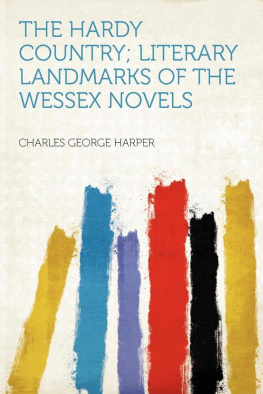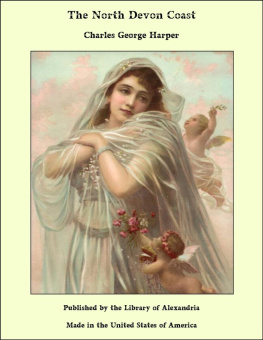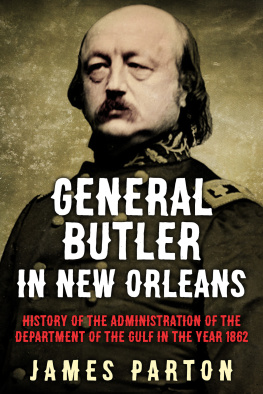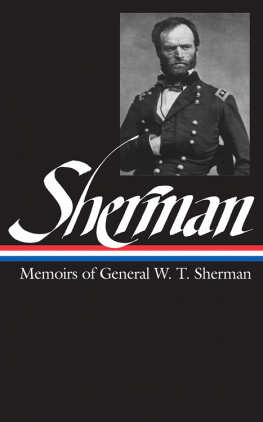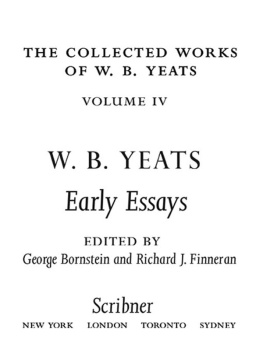This edition is published by PICKLE PARTNERS PUBLISHINGwww.picklepartnerspublishing.com
To join our mailing list for new titles or for issues with our books picklepublishing@gmail.com
Or on Facebook
Text originally published in 1899 under the same title.
Pickle Partners Publishing 2014, all rights reserved. No part of this publication may be reproduced, stored in a retrieval system or transmitted by any means, electrical, mechanical or otherwise without the written permission of the copyright holder.
Publishers Note
Although in most cases we have retained the Authors original spelling and grammar to authentically reproduce the work of the Author and the original intent of such material, some additional notes and clarifications have been added for the modern readers benefit.
We have also made every effort to include all maps and illustrations of the original edition the limitations of formatting do not allow of including larger maps, we will upload as many of these maps as possible.
CHARLES GEORGE GORDON
BY
COLONEL SIR WILLIAM F. BUTLER
CHAPTER I THE NAME AND THE CLAN-ANCESTORS-BIRTH-EARLY DAYS-ENTERS ROYAL MILITARY ACADEMY
GORDONSpear, the first weapon shaped by man to aid his fight with nature, and give him dominion over the wild things of plain and forest: the emblem of highest rank among the old Norse gods, held in the right hand of Odin: the weapon of sacrifice among those dim Celtic tribes whose existence is all but lost in the dawn of historya name that goes back beyond history and beyond even tradition, into days when man began to chip the stones of primeval river-beds. into leaf-shaped sharpened flints: a name full of strange significance in our history, whether borne in Norman, Saxon, or Celtic sound, in simple or compound form by priest, poet, or soldier, by Breakspeare, Shakespeare, Byron, or Gordon, by those whose words and deeds have stirred mens blood as none other in our history have done.
An old race, this Gordon, and a stout one: fierce fighters, true soldiers, hard-striking, hard-dying men, whose names crop up wherever fighting is found in their countrys history: holding their own, and often their neighbours lands and chattels, with a tight grasp, yet ever prodigal of blood and gold for clan and king: smiting Mackays, Crichtons, Sinclairs, Forbes, Camerons, Lindsays, and Macintoshes through the wild straths and glens of Banff, Caithness, and Sutherland until they and their enemies disappear backward into time, amid an unresolvable mist of conflict, where the writ of history does not run.
And downward, into the broader light of the sixteenth and seventeenth centuries, we see these Gordons steadily falling into grander groups, where the issues are faith and king, and the rewards are the prison and the block; their names standing out in times of political storm like guiding lights that tell us, without further need of search, where the old landmarks lie s .
He is a Gordon who rallies round him whatever is left in Scotland of loyalty and honour, when the preaching of Knox, the intrigues of Cecil, and the murders of Murray have upset the throne of Mary Stuart, and all but brought Scotland under the dominion of Elizabeth.
A Gordon is the first to raise the royal standard for Charles, and one of the last to lay his head on the block at the Market Cross of Edinburgh, telling his enemies that the only regret he has in dying is that he had not been the first to suffer in a cause which made death so sweet to him ; and also telling the Covenanting ministers, who came at the last moment to pester him with offers of their absolution if he would acknowledge his treason to them, that as he had never been accustomed in life to give ear to false prophets, so now he did not wish to be troubled by them at his death.
The Marquis of Huntly, whose spirit neither disaster nor imprisonment could subdue, was not the only Gordon who suffered at the Market Cross of Edinburgh, and the footsteps of three of his best friends and leading gentlemen of the clanGordon of Invermarkie, Gordon of Newton Gordon, and Gordon of Harthillhad already made easier for their chief the pathway to the scaffold.
How many had fallen fighting under Montrose will never be known, but almost the entire loss suffered by the royal army in the brilliant victory of Alford was borne by the Gordons; and it was there that the hope and pride of the clan, the man whom Montrose called his only friend, Huntlys eldest son, Lord Gordon, fell at the moment he was dragging the Covenanting general from his saddle.
But, with all its native feuds and quarrels, Scotland in the seventeenth century could not find room for the warlike proclivities of the Gordon race. The cadets of the clan were to be found in the armies of Sweden, France, Spain, and the Empire. Four of them rose to high rank in the service of Gustavus Adolphus, another became a general in the Russian service, and another left his name for ever associated with the dark scene in the Castle of Eger on February 25th, 1634.
After the Stuart cause went finally out in a last blaze of fruitless victory at Killiecrankie, William of Orange was too good a soldier and too astute a politician not to see that the Highland broadsword was an excellent weapon, provided he could only manage to keep it always smiting his enemies; but knowing that it had a second edge which might be disastrously turned against himself, he immediately began to adopt towards the Highlanders a triple policy of treachery, bribery, and emigration. He caused the Macdonalds to be massacred; he gave twenty thousand pounds to Breadalbane to be distributed among the chiefs; and he raised several regiments of Highland dragoons to fight his battles in the Low Countries. Of the prowess of these last mentioned emigrants, who were not intended, if it could be helped, to be let back again into the Highlands, we get a glimpse in the pages of Evelyn, under date April 1694: Some regiments of Highland dragoons were on their march through England. They were of large stature, well-proportioned, and disciplined. One of them, having reproached a Dutchman for cowardice in the late fight, was attacked by two Dutchmen, when with his sword he struck off the head of one and cleft the skull of the other to the chin. Truly this claymore was a weapon to be taken away as soon as possible from the hands of such a people. But it was one thing to pass an Arms Act in Westminster, and another to enforce disarmament among the rude clachans of the clansmen, and in the castles where the chiefs still held their own, hard by thundering Spey. Rusty flint-lock or cumbrous horse-pistol might be given up, for the true Highlander had for such arms almost as great contempt as the Arab of the desert has to-day for musket or rifle; but the broadsword, the weapon of his heart and hand, he would keep to the death. And it must be admitted that he had some reason to love this claymore. Keep a tight hold of the hilt of the sword, and a loose one of the mouth of the purse; had been his old motto in days when the sword had filled the purse; and he possessed a very shrewd idea that to give up the sword, even though it no longer filled his purse, was also to abandon home and clan. So, despite Arms Act or disarmament order, the Highlander held on to his claymore. And he was not mistaken in the weapon of his choice, even though his love for it had been laid in times when it was the acknowledged and unrivalled Queen of Arms long before the clays of arquebus, snaphaunce, or flint-gun. In 1745 a body of Highlanders, numbering less than two thousand men, utterly routed and destroyed in five minutes fighting a force of old and seasoned regular troops, fresh from the Flemish wars, capturing guns, camp, and baggage, killing or taking prisoners more than two thousand infantry, and doing it all so instantaneously that the second line of clansmen, placed only fifty paces in rear of the first, and following that first line in its charge as fast as Highland legs could run, never got blow of sword or scythe (for many of the men had taken scythes for want of swords) at the English enemy, and had to content themselves with prisoners and plunder. Of these there were ample for allstandards, tents, military chest, together with fifteen hundred prisoners of the foot regiments of Lee, Lascelles, and Murray, were taken on the field. Among the officers thus captured at Gladsmuir, as the victors called the-field of battle, there was one David Gordon, a Highlander, serving in the regiment known as Lascelless Foot. It is the life of the great-grandson of this man that I now propose to write.




